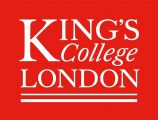
King’s Business School boasts a team of academics and researchers influencing policy and making sense of statistics in uncertain times
King’s Business School, based in Bush House in London’s West End, the former home of the BBC World Service, offers a growing range of management, finance and economics programmes to a diverse cohort of students. It started life as a department of King’s College London and was officially launched as a business school in its own right in 2017.
Partnerships are at the heart of the school’s growth. In October 2020, it launched a new executive education programme for Qatar Central Bank, following a generous donation by the bank to develop its research. The programme will deliver executive education to employees at the bank to help them build skills to drive stability and economic growth, and will also support academic programmes at King’s, including new master’s degrees in financial regulation, economic data analysis and asset finance.
“We hope we can attract students who would like to specialise, or we can offer blended teaching to cater for mid-career students who mix study with work,” says George Kapetanios, professor of finance and econometrics.
King’s Business School also plays an influential role in policymaking, most notably through its close ties with the Bank of England. Professor Kapetanios’ team at the Data Analytics for Finance and Macro Research Centre has been supporting the Bank on big data analysis that it can use to shape future economic policy. Researchers at the school have contributed to the modelling behind the Bank of England’s quarterly “fan chart”, a statistical tool used to predict future inflation.
Similar research partnerships exist with the European Central Bank, Eurostat and the Office for National Statistics (ONS). Mary O’Mahony, professor of applied economics, says: “Our long-term goal is to enhance economic measurement, to broaden interest in this in groups that wouldn’t normally be involved in it.”
The school is one the main partners of the Economics Statistics Centre of Excellence, which oversees research into areas as diverse as the impact of new technologies on how we measure economic welfare, and new sources of data to measure immigration. It is also supporting the ONS on its analysis of pandemic-related economic metrics. O’Mahony adds: “Mostly we’re economists, but we’re heading in a more social direction, considering issues such as immigration, the labour market and health, particularly in relation to the current crisis. Not just at King’s – our knowledge feeds into economic measurement elsewhere, with connections to statistical offices around the world.”
Human capital is another statistical area of interest: in August 2020 the school became one of the partner institutions of the new Productivity Institute, headquartered at the Alliance Manchester Business School at the University of Manchester.
Academics seeking a role at King’s Business School will need to be able to provide practical solutions, according to Professor Kapetanios. The school is made up of a diverse group of individuals – some focus more on research than teaching, others have links to business. Professor O’Mahony sums up this approach: “We want people who are excited about the prospect of working for an expanding business school, who are collegiate and happy with change. We’re a growing school, so people get involved in many areas.”
Find out more about King’s Business School.






